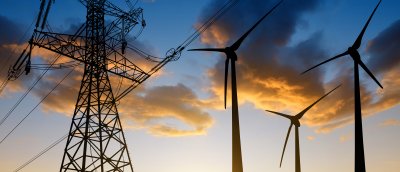CoNDyNet: Collective non-linear dynamics of complex power grids (CoNDyNet) - Transition scenarios for completely renewable electricity supply

Within the joint project "Collective Nonlinear Dynamics of Complex Grids" (CoNDyNet) FIAS concentrates on the investigation and modelling of the transition to a completely renewable energy supply in Germany.
The focus is on the development of concepts for an optimal network design both in the 2050 stage of a fully renewable energy supply and in the transition period in which the backup systems of conventional power generators and potential energy storage have to be integrated. In order to maximize the efficiency of the overall system, the coupling of different energy infrastructures, such as the electricity and gas networks, will be integrated into the investigations. Using methods of statistical physics of complex networks and based on real load and weather data as well as the influence of weather dynamics changed by climate change, realistic scenarios and strategies will be developed for the efficient design of an end-of-life energy turnaround.
FIAS is working on the three subprojects I.2 (Statistical Physics of Complex Systems), II.1 (Grid Operation with Fluctuating Feeding) and III.1 (Efficient Structures and Extensions).
This project focuses on basic research and scenario development for energy system transformation. Therefore, the results should serve as a basis for decision making in industry and politics as well as a visionary contribution to the scientific dialogue.
More information on the project website:
Project Leader and Cooperation Partners
At FIAS
Prof. Dr. Stefan Schramm
Cooperation Partners
- Potsdam-Institut für Klimafolgenforschung (PIK) (Coordinator)
- Forschungszentrum Jülich (FZJ)
- Jacobs University Bremen (JUB)
- Technische Universität Dresden (TUDD)
- Max-Planck-Insitut für Dynamik und Selbstorganisation (MPIDS)
